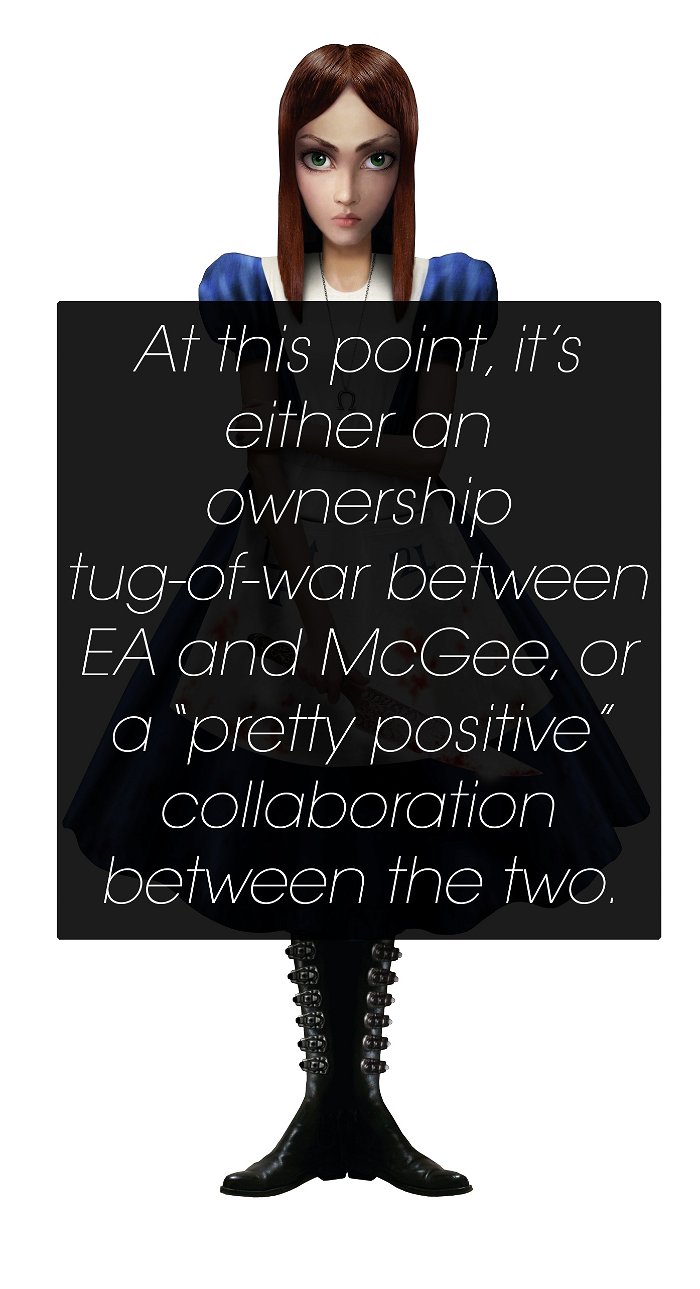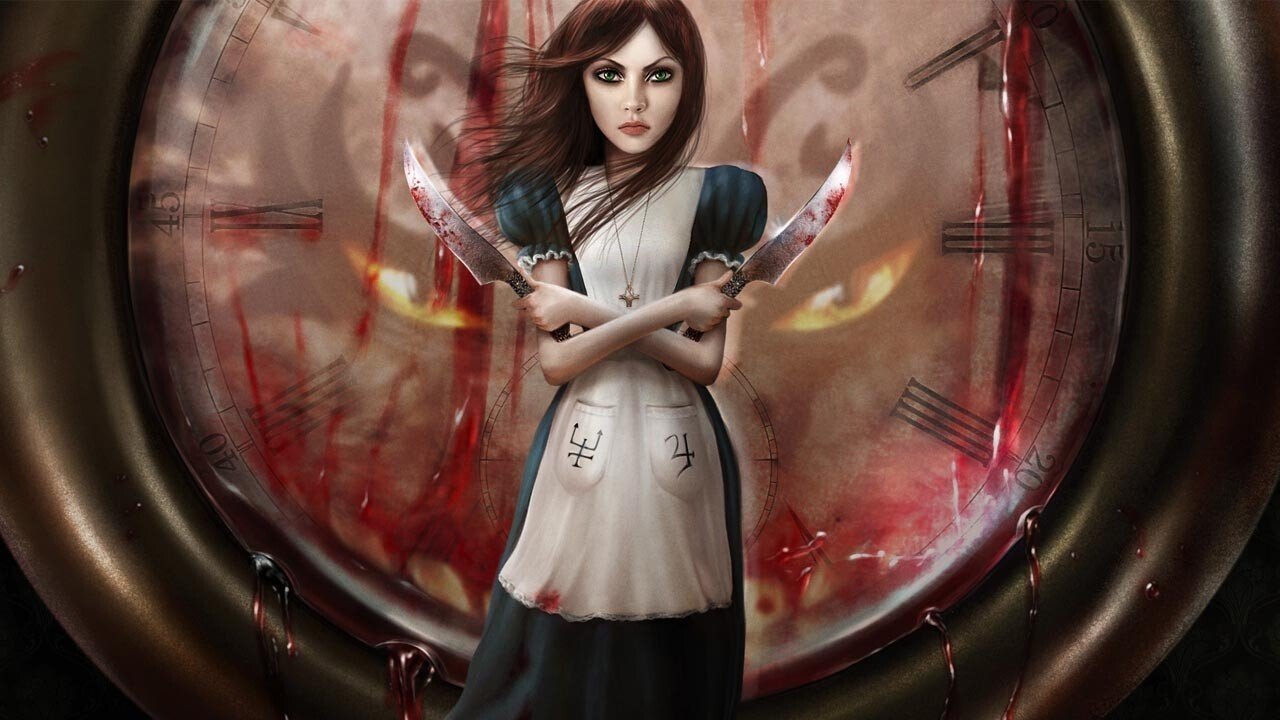In 2000, designer American McGee introduced gamers to a dark side of Lewis Carroll’s classic Alice in Wonderland series.
American McGee’s Alice, a third person action game infused with psychological horror elements, was well received. The Metacritic consensus was an 85 percent; critics praised the game for its elaborate visuals, and more importantly, the ability to successfully recreate Alice as a macabre heroine.
Fast-forward to 2011, and McGee presented the sequel, Alice: Madness Returns. Unlike its predecessor, Madness Returns had a lukewarm performance, with an average rating of 70 percent on Metacritic. Nonetheless, it remained popular among fans, and didn’t stop McGee’s stride in creating a third Alice. In May 2011, McGee stated that a story for a third installment is in the works, but stressed production would occur only if the audience wanted it. Standing in the way of McGee’s third Alice was Electronic Arts (EA). They own the intellectual property to Alice, and are showing no signs of continuing another chapter in the Alice series.
 So, is it worth creating another Alice game? Why did gamers enjoy Alice in the first place?
So, is it worth creating another Alice game? Why did gamers enjoy Alice in the first place?
To backtrack, let’s look at what contributed to McGee’s success as a designer. McGee finds inspiration in fairytales, mythologies and fantasy stories. Traditional lore, according to McGee, manifests common themes of fear and survival. McGee focuses on these themes to allow players to interact and foster an intimate relationship with his darker, repurposed fairytales.
In an interview with Polygon at the 2013 Game Developers Conference (GDC), McGee used Red Riding Hood as an example: the story has connotations of being afraid of the dark and unknown. The lessons learned—such as not venturing into the woods alone—reveals an instructive and cautionary tale to children, teaching them about the basic modes of survival. This can be transferred into survival horror genres, where characters have to rely on intuition and instinct to survive.
American McGee’s Alice presented a different mode of survival. Set in a dystopian Alice in Wonderland and Through the Looking Glass, cynical Alice struggles with a foe she’s all too familiar with—herself. Wonderland is corrupt because it’s plagued by Alice’s insanity. Alice must restore sanity to her mental state first before she can reclaim order and balance to Wonderland.
Many gamers enjoyed this refresh to Alice’s character (and generally, the original story). Thanks to Disney’s sugarcoated conditioning, Alice is generally viewed as a fair-haired, blue-eyed, sweet and innocent young lady. Now dark-haired with moody lips, Alice’s game incarnation not only symbolized her psychological turbulence, but also invited players to step inside her twisted world. Fans achieved a deep connection with Alice though the game’s intricate visuals. McGee was able to provide gamers with a storyline that repurposed existing fairytales to explore the idiosyncrasies of the human mind.
Last month, McGee asked fans on Facebook whether or not they would play a third Alice (which would be titled Alice in Otherland) if he claimed the rights from Electronic Arts. He also asked fans if they would back it on Kickstarter. The majority of fans were in support. At McGee’s urging, fans took to the Internet to make their voices heard.
There were two online petitions—one on the Petition Site and the other on iPetitions—requesting EA to realize McGee’s vision of making Alice in Otherland a reality. 11,303 signatures were signed on the Petition Site, almost reaching its goal of 12,000, while only 1,012 out of the 10,000 signatures were signed on iPetitions.
With enough interest from fans, McGee wanted to prove to EA that Alice in Otherland should be produced. He stated on his Facebook page last month that he would have the chance to discuss with EA plans for a third Alice at the GDC.
Although EA has not officially released a statement about Alice in Otherland’s production, McGee tells Polygon in an interview they are “pretty positive” about his ideas for a third Alice installment. Everything is working to McGee’s advantage—his fans are making their voices heard through online petitions, and have agreed to provide funding through Kickstarter.
While things appear to be looking good for McGee and his fans, it would be wise to not be overconfident. The future’s not ours to see; we don’t know how long EA’s supposed positivity for a third Alice would last. There’s confusion about, what caused EA to lose their faith in resuming the Alice series, and what they’re doing to rekindle that spark. McGee has created a unique, dark interpretation of fairytales that has resonated with audiences.
At this point, it’s either an ownership tug-of-war between EA and McGee, or a “pretty positive” collaboration between the two. Either way, McGee’s not backing down, and will stop at nothing until Alice in Otherland is officially announced.




